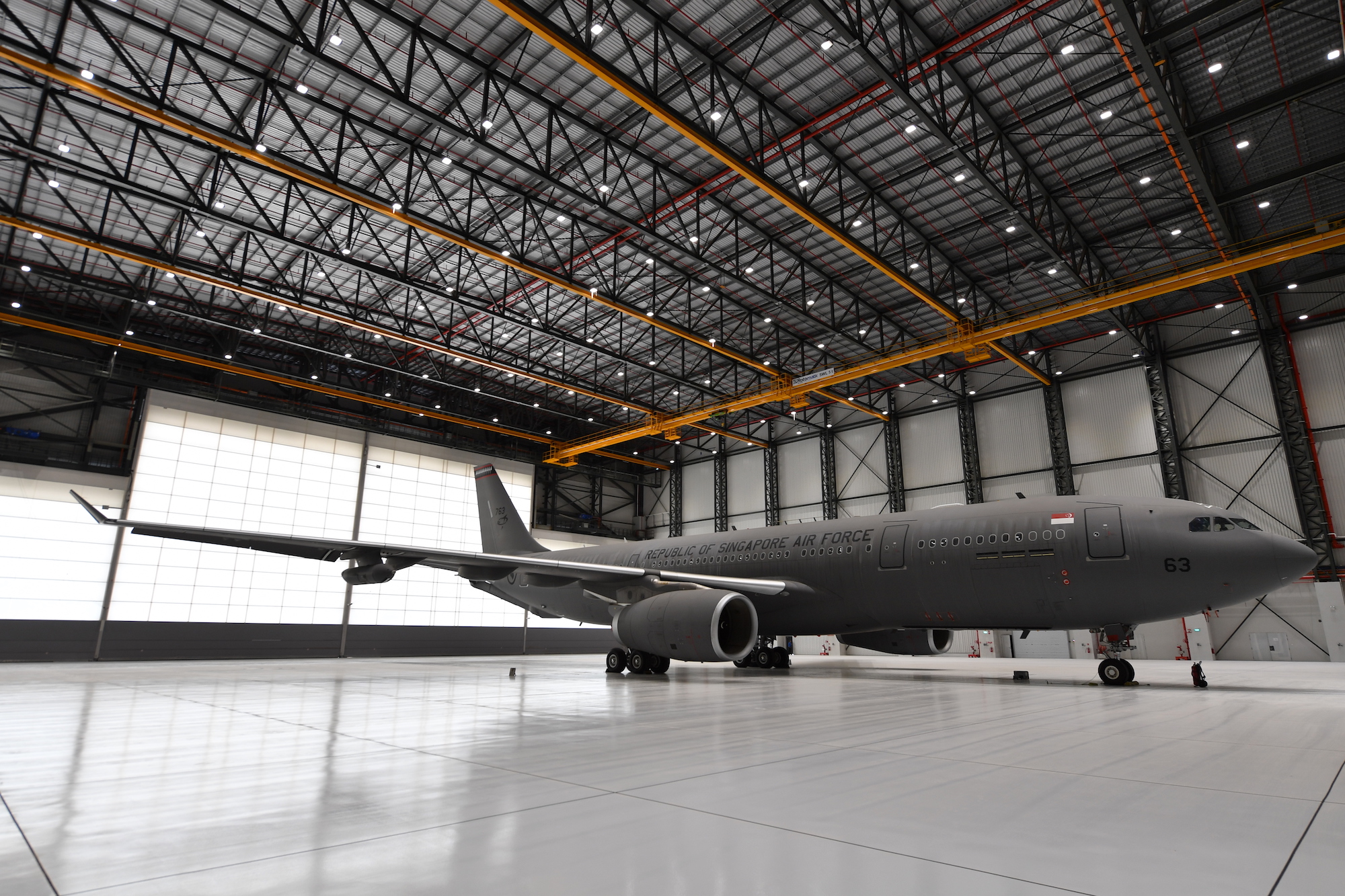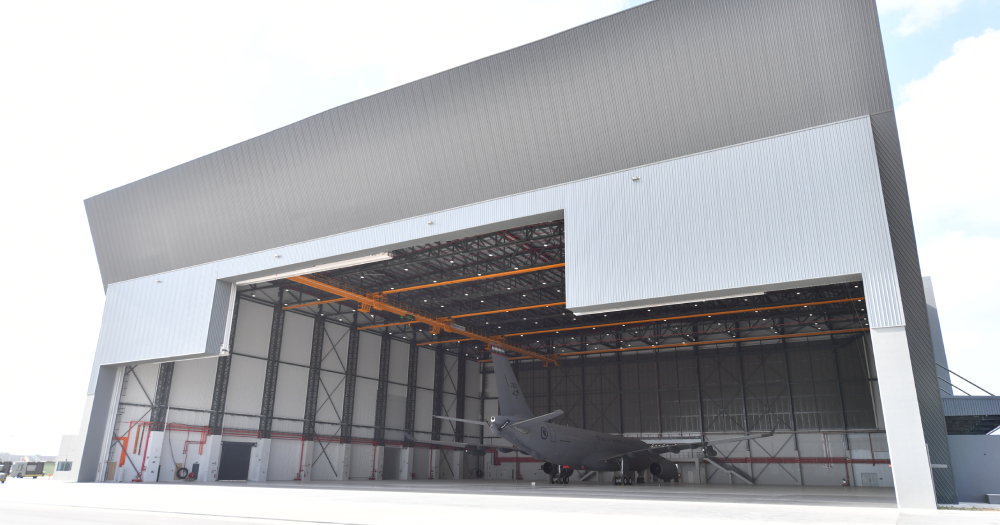Singapore's defence forces are going green according to Defence Minister Ng Eng Heng, who called climate change "another threat for which the SAF may not be primarily responsible, but must join in efforts for Singapore’s safety and security."
In his speech on March 2, at the Committee of Supply debates, Ng announced a number of measures in line with the government-directed goal to reduce carbon emissions and mitigate the effect of climate change.
Net-positive aircraft hangar
Amongst them was the unveiling of the Singapore Armed Forces' (SAF) first net-positive energy building — an aircraft hangar in Changi Air Base due to be completed in March 2020.
The hangar will be able to generate 30 per cent more electricity than it consumes.
This is due to "certain features that we incorporated into the design of the hangar," said Ng.
These features include:
- Solar panels as a source of renewable energy, which will enable the hangar to generate enough electricity a year to power 273 four-room HDB households.
- Water conservation features that will see rainwater harvested and recycled, which along with the use of water-efficient fittings will see the hangar's annual water savings equal that of the amount of water used by 28 four-room HDB flats.
- Sustainable temperature reduction features such as a green roof that acts as an insulation layer and naturally ventilated spaces within the hangar.
- The use of sustainable and eco-friendly products in the building's construction.
 The "green roof" of the hangar. Image courtesy of MINDEF
The "green roof" of the hangar. Image courtesy of MINDEF
 Hangar interior with panelled fabric doors lowered. Image courtesy of MINDEF
Hangar interior with panelled fabric doors lowered. Image courtesy of MINDEF
More energy-efficient buildings
Furthermore, Ng announced that solar panels will be installed on buildings in 12 SAF camps by the end of the 2020 financial year.
Already, two buildings -- one in Kranji Camp III and one in Seletar Camp -- are recognised as net-zero energy buildings. Both are fully powered by solar energy.
Ng added that the NS Hub, due for completion in 2023, was designed to maximise natural ventilation so as to reduce heat and energy demands.
The building will aim to be among the top ten per cent of energy-efficient buildings in Singapore.
Turning cookhouse waste into energy
Another measure was the Ministry of Defence's intention to expand its food waste management system to 18 cookhouses.
There are already eight cookhouses using a system established under a joint collaboration between the SAF, National Environmental Agency, and the Defence Science and Technology Agency.
"Currently, food waste collected from eight cookhouses is processed by microbes and enzymes at recycling plants to generate biogas," said Ng.
"We are looking to expand this to ten more cookhouses."
If the initiative is deemed successful, it will be introduced to all of the cookhouses in the SAF.
Hybrid vehicles
Ng also announced steps to make transportation more energy efficient.
This included replacing SAF's 400 administrative vehicles with hybrid models by 2023, and then later with fully electric vehicles when Singapore's infrastructure permits.
The initial swap will reduce emissions by up to two-thirds per vehicle, said Ng.
Additionally, the use of hybrid propulsion systems in the Republic of Singapore Navy's new vessels is being explored.
While still in the concept stage, Ng said that the technology would "enable our new ships to not only reduce carbon emissions but become more energy efficient than the ships they are planned to replace."
This will enhance their operational endurance, according to Ng.
Top image courtesy of MINDEF
If you like what you read, follow us on Facebook, Instagram, Twitter and Telegram to get the latest updates.
